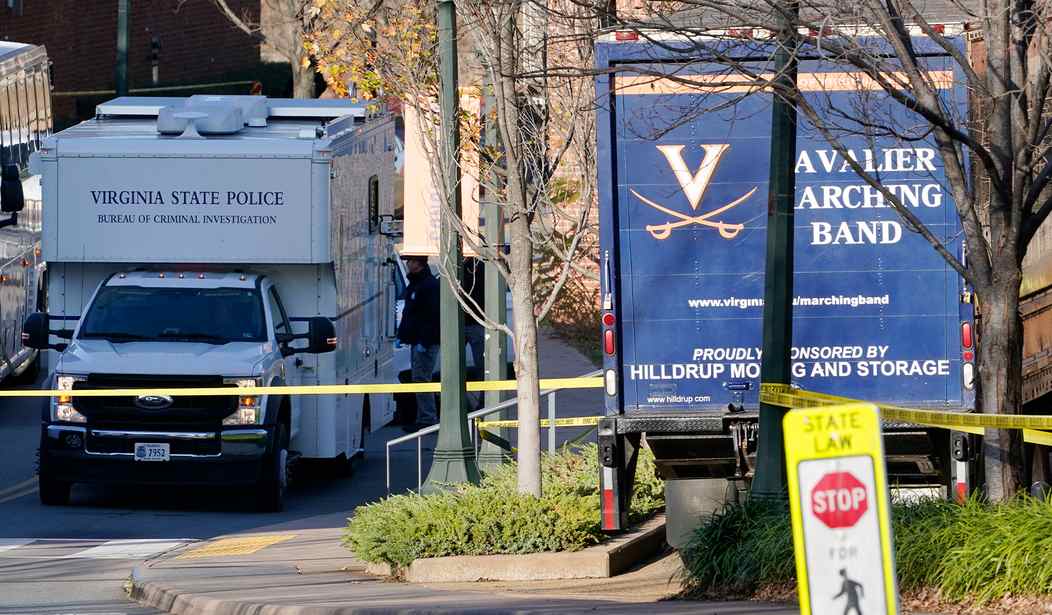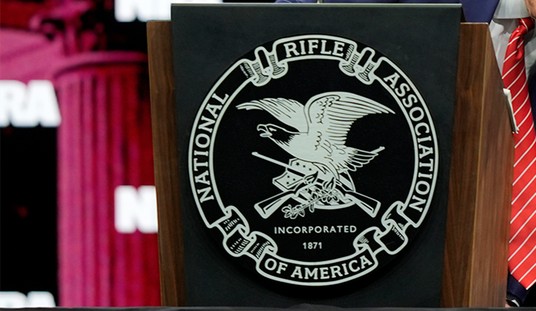I live about 40 miles from Charlottesville, Virginia, where the murder of three University of Virginia students and the wounding of two others, all apparently members of the Cavaliers’ football team, has rightfully shocked and horrified the college town. Democrats are already trying to use the shooting to advance an anti-gun agenda, with Biden press secretary Karine Jean-Pierre releasing a statement that touted the president’s signing of the bipartisan Senate gun control bill and called for “an assault weapons ban to get weapons of war off America’s streets.” Police haven’t said what kind of firearm the suspect used in the attack, but there have been no indications that it was a rifle. Of course, this wouldn’t be the first time that Biden has tried to associate semi-automatic rifles with murders in which handguns or shotguns were used. Why let the facts get in the way of his preferred anti-gun narrative?
While we don’t know all of the details surrounding the circumstances of the shootings, what has emerged suggests that, rather than pointing to the supposed need for any new restrictions on peaceable gun owners, this was yet another case of current laws and policies not being fully enforced.
The University of Virginia’s threat assessment team became aware of Christopher Darnell Jones Jr. in September when a third party reported Jones may have had a gun, Charlottesville police chief Timothy Longo said Monday.
Jones, a Richmond native, has been charged with three counts of second-degree murder and three counts of using a handgun in a felony.
Three UVa students were shot and killed on campus Sunday, and two more were injured.
In September, a person reported that Jones had made a comment about possessing a gun. The university attempted to contact Jones and reached his roommate, who did not see a weapon. It’s unclear if police spoke with Jones and what came of their investigation.
There’s your first red flag. UVA is a gun-free zone, but it doesn’t sound like investigating whether or not Jones had one on campus was a big priority for the department, despite the fact that Jones had previously been arrested on an off-campus gun charge.
Jones committed a concealed weapon violation in the Charlottesville area in February 2021, which the school was aware of, Longo said. School policy requires students to report such violations, but Jones never did, Longo said. The school’s judiciary committee began a disciplinary process, but the case’s status is still pending.
Another red flag. If the university is supposedly so committed to pursuing action to prevent “gun violence,” then what accounts for the lackadaisical disciplinary system?
Again, it’s still very early on in the investigation, and we don’t know the supposed motive for the shootings or whether or not there were any specific warning signs in recent days or weeks. Apparently Virginia’s “red flag” law was never invoked against Jones, though it’s been used hundreds of times across the state since it went into effect a little more than two years ago.
Virginia judges have issued at least 327 emergency substantial risk protection orders, which allow police to temporarily confiscate firearms to address an immediate risk. Judges have issued 257 permanent substantial risk protection orders, which confiscate the guns permanently, unless overturned through the court system. The data runs from July 1, 2020, when the law went into effect, through August 2022. The data does not state how many guns were confiscated from the individuals.
Gun groups have been critical of the law ever since it was proposed because of how much authority is granted to a judge and because a person might have his guns seized before he has a chance to defend himself in court.
“Red Flag laws are an invention of the gun-control crowd and are unconstitutional due to their usurpation of Due Process,” Philip Van Cleave, the president of the Virginia Citizens Defense League, told The Center Square.
“Red Flag laws are an easy way for [the] government to confiscate guns without getting a person any help or giving the person a chance to defend against any false accusations for up to two weeks,” Van Cleave said. “The person has no idea that they have been accused of anything until the police show up at their door to get their guns.”
Van Cleave said the commonwealth already has two better laws in place: the temporary detention order and the emergency custody order. These laws allow magistrates to temporarily detain a person who may be a risk to himself or others due to a problem with mental illness and provide them with mental health services. Red-flag laws, he noted, do not even direct people to mental health treatment after confiscating their firearms.
Police have said nothing about Jones ever being taken in on a mental health hold, so it sounds like whatever concerns law enforcement had about him, it never rose to the level of considering him an imminent threat to himself or others.
Who knows, however, what they might have uncovered if they’d spoken to him back in September. Hindsight is 20/20, but there are legitimate questions about the university’s handling of his earlier gun-related incidents and whether authorities might have been able to prevent Sunday’s shootings if they’d taken those incidents more seriously.
Those questions will be asked, but I don’t know what kind of answers we’re going to get. And honestly, the bigger priority for Democrats in Richmond will be trying to use this tragedy as a springboard to push more gun control laws on Virginians. With Republicans in control of the state house and governor’s office I don’t think those efforts are going to get far, but the state also has legislative elections next year and Democrats will undoubtably try to make Republican opposition to their desired infringements a campaign issue in 2023.









Join the conversation as a VIP Member